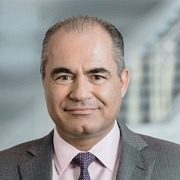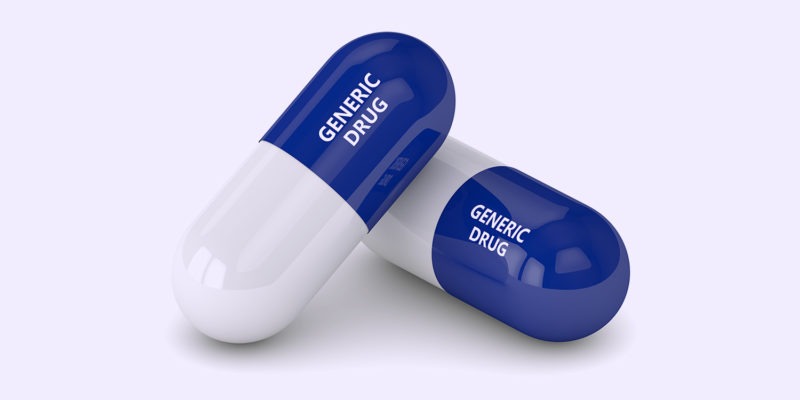Company Moves: The Latest in the Global Generics Market
Novartis’ decision to spin out Sandoz, its generics and biosimilars business, into a separate, stand-alone company is the latest move in the highly cost-competitive generics market. What was behind Novartis’ decision, and how does it fit with other recent deals?

CEO
Novartis
Novartis to spin off Sandoz
Novartis announced late last month (August 2022) that it intends to spin off Sandoz, its generics and biosimilars business, into a separate publicly traded stand-alone company. The company had announced last November (November 2022) that it had begun a strategic review of Sandoz.
“For Novartis, the separation of Sandoz would further support our strategy of building a focused innovative medicines company, with depth in five core therapeutic areas, and strength in technology platforms,” said Vas Narasimhan CEO of Novartis, in an August 25, 2022, statement. “In addition, both companies would be able to focus on maximizing value creation for their shareholders by prioritizing capital and resource allocation, employing separate capital structure policies, and increasing management focus on their respective business needs.”
The stand-alone Sandoz would be headquartered in Switzerland and be listed on the SIX Swiss Exchange, with an American Depositary Receipt (ADR) program in the US. Completion of the proposed spin-off is subject to satisfaction of certain conditions, including consultation with works councils and employee representatives (as required), general market conditions, receipt of favorable tax rulings and opinions, final endorsement by the Board of Directors of Novartis AG and shareholder approval. Completion of final board endorsement and shareholder approvals is expected in the first half of 2023.
The move to spin off Sandoz comes as it, like other generic drug companies, face increased pricing pressure in an already highly cost-competitive market. Sandoz posted 2021 net sales of $9.6 billion, which represented 18.7% of Novartis’ total net sales in 2021, but its sales were flat with zero growth in 2021. Like other generics companies, Sandoz faces increased industry-wide pressure on prices for generic products, particularly in the US, driven by factors that include customer consolidation and increased customers’ purchasing leverage and growing competition from other manufacturers of generic medicines. These factors contributed to a decline in industry-wide US sales that began in 2017 and continued through 2021.
Pricing and margin pressures, particularly in the US generics market, was the impetus behind Novartis’ decision four years ago (September 2018) to divest a portion of Sandoz’s US portfolio to focus on more value-added medicines, complex generics, and biosimilars. Novartis had struck a deal with Aurobindo Pharma USA, the US arm of Aurobindo Pharma, a Hyderabad, India-based generics and manufacturing company, to sell Sandoz’s US dermatology business and US oral solids generics portfolio for approximately $1 billion ($800 million upfront plus cash and potential earnouts). The deal was conditional on obtaining regulatory approval, and the companies mutually terminated the deal in April 2020 after not receiving approval from the US Federal Trade Commission within agreed timelines.
Sandoz is organized into three main franchises: retail generics, anti‑infectives and biopharmaceuticals. In retail generics, Sandoz develops, manufactures and markets active pharmaceutical ingredients (APIs) and finished dosage forms of small-molecule pharmaceuticals to third parties and finished dosage form anti-infectives sold to third parties. In its anti‑infectives business, Sandoz manufactures and supplies APIs and intermediates, mainly antibiotics, for internal use by its retail generics business and for sale to third‑party customers. Its Kundl, Austria, manufacturing site is the hub of a vertically integrated antibiotics production chain in Europe. In biopharmaceuticals, Sandoz develops, manufactures, and markets protein‑ and other biotechnology products, including biosimilars, and provides biotechnology manufacturing services to other companies. In biosimilars, Sandoz has eight approved (as of end of December 2021) and marketed products, and a pipeline of over 15 molecules.
For its generics business, Europe is its largest market, accounting for approximately $5.3 billion in net sales to third parties, or 55% of Sandoz’s net sales in 2021. The US accounted for $1.8 billion, or 19%, and Asia, Africa, Australasia, nearly $1.7 billion, or 17%. Canada and Latin America accounted for $872 million or 9%.

CEO
Viatris
The latest in a series of moves in the generics market
Novartis’ decision to spin off Sandoz is yet another move by a leading generics company to reshape its business to improve performance (see Table I at end of the article). Perhaps the most notable recent deal occurred two years ago (November 2020) with the completed merger that combined the generics company, Mylan, and Upjohn, Pfizer’s off-patent branded and generic established medicines business, to form Viatris.
For both Mylan and Pfizer, the deal reflected a common strategy to address performance in their respective businesses. In August 2018, Mylan formed a strategic review committee to evaluate alternatives for its businesses following weak performance in its North American segment. Mylan, like other large generic-drug companies, faced increased pricing pressure and competition, particularly in the US market. For its part, Pfizer had been evaluating a possible separation of its generics and established product business from its core prescription innovator drugs and vaccines business dating back to when the company was led by Ian Read, who stepped down as CEO in January 2019, with Albert Bourla, formerly the Chief Operating Officer of Pfizer, taking the role of CEO. Pfizer then re-organized into three main areas: the Biopharmaceutical Group, which included its prescription, innovator products; Upjohn, which included its off-patent branded and generic established medicines business; and Consumer Healthcare, which included its over-the-counter (OTC) business, which was subsequently combined with GlaxoSmithKline’s (GSK) consumer healthcare business in 2019 to form a new consumer healthcare joint venture. Earlier this year (2022), GSK spun off its Consumer Healthcare division into a separately listed company, Haleon.
For Viatris, the question now is whether the Mylan–Upjohn combination will improve the fortunes of the combined company. Post-merger, Viatris is proceeding with a multi-year, $1-billion global restructuring initiative that involves a potential reduction of 20% of its workforce and a rationalization of its manufacturing footprint. Viatris first announced plans for its restructuring in November 2020. following the closing of the deal that combined Mylan and Pfizer’s Upjohn, and announced what it termed “reshaping” of its business in February (February 2022). In its second-quarter 2022 earnings release, the company said it had paid down approximately $1.5 billion of debt in the half of 2022 and is on track with a full-year 2022 target of approximately $2 billion in debt reduction. For the first-half of 2022, the company net sales of approximately $8.28 billion, an 8% decline year-over-year.
Viatris is also moving forward with its divestment of its biosimilars business to Biocon, a Bangalore, India-based bio/pharmaceutical company. As part of what it terms as a “reshaping plan,” Viatris is divesting its biosimilars assets to Biocon Biologics for $3.35 billion, which includes an equity stake in Biocon Biologics. The move is part of an overall plan by Viatris to achieve $9 billion in pre-tax proceeds through the Biocon Biologics transaction and the divestment of other non-core assets.
Under the agreement, Viatris will divest its biosimilars portfolio and related commercial and operational capabilities to Biocon Biologics for $3.335 billion. Viatris will receive $3 billion in consideration in the form of a $2 billion cash payment and $1 billion of convertible preferred equity for a 12.9% stake in Biocon Biologics. Viatris will also receive up to $335 million as additional cash payments that are expected to be paid in 2024. Viatris will also have certain priority rights with respect to certain liquidity events. The deal is expected to occur in the second half of 2022, subject to satisfaction of closing conditions, including certain regulatory approvals.
Upon closing, Biocon Biologics will target an initial public offering in India as early as late 2023. Viatris also has the right to designate one member of the Biocon Biologics Board and intends to appoint its President, Rajiv Malik, to this seat. The companies will also enter into a transition services agreement under which Viatris will provide certain transition services for an expected two-year period, including commercialization services. Biocon Biologics currently has a portfolio of 20 biosimilars with 2022 estimated revenue of approximately $875 million. Viatris and Biocon have been partners in biosimilars. In 2009, Biocon formed an alliance with Mylan, Viatris’ predecessor, to develop monoclonal antibody biosimilars. In 2013, the partnership expanded to include insulin biosimilars.
Teva: debt reduction and the US market
Teva Pharmaceutical Industries, another top generics player and leading generics company in the US, is now four and a half years past the launch of a major restructuring plan that the company announced in late 2017. The plan addressed declining revenue from its generics business, large debt caused by its $40.5-billion acquisition of Allergan’s generics business in 2016, and declining revenue from its number one specialty innovator product at the time, Copaxone (glatiramer acetate) for treating multiple sclerosis, which faced its own generic-drug competition. Kåre Schultz, who became Teva’s President and CEO in 2017, was hired to turn the company around. He has since overseen the company’s restructuring and developed the ensuing strategy of further diversifying in innovator drugs and optimizing its generics portfolio by rationalizing the company’s generics portfolio and moving it away from less profitable areas to more value-added products, such as complex generics, biosimilars, and other products with a higher barrier to market entry.
Perrigo exits generics
After a multi-year effort, Perrigo finally realized its strategy to become a pure-play over-the-counter (OTC) business with the divestment of its generics business, a deal completed in 2021. In 2021, Perrigo sold its generic prescription pharmaceuticals business to Altaris Capital Partners, an investment firm, for $1.55 billion. Perrigo first announced plans in 2018 to separate its prescription pharmaceuticals business, which consisted primarily of generic drugs, to focus on its OTC business.
Table I: Key Recent Moves in the Generic Drug and Biosimilars Market
| Date | Company | Action Taken |
| August 2022 | Novartis | Novartis announces intent to spin off Sandoz, its generics and biosimilar business, into a separate publicly traded company; expected completion 2nd half of 2023. Novartis had announced a strategic review of Sandoz in October 2021. |
| April 2022 | Samsung Biologics & Biogen | Samsung Biologics completes acquisition of Biogen’s stake in Samsung Bioepis, a biosimilars joint venture of Biogen and Samsung Biologics, to assume full ownership, for $2.3 billion. |
| April 2022 | Hikma Pharmaceuticals | Hikma Pharmaceuticals completes acquisition of Custopharma in $425-million deal ($375 million upfront & $50 million in contingent milestone payments) |
| February 2022 | Biocon Biologics & Viatris | Biocon Biologics agrees to acquires Viatris’ biosimilar business for $3.34 billion; De deal is expected to occur in the 2nd half of 2022. |
| July 2021 | Perrigo | Perrigo completes sale of its generic Rx pharmaceuticals business to Altaris Capital Partners, for $1.55 billion, to become a pure-play over-the-counter (OTC). Perrigo first announced plans in 2018 to separate its Rx pharmaceuticals business, which consisted primarily of generic drugs, to focus on its OTC business. |
| April 2021 | Amneal Pharmaceuticals | Amneal Pharmaceuticals completes Acquisition of Kashiv Specialty Pharmaceuticals, which is focused on the development of complex generics, innovative drug delivery platforms and 505(b)(2) drugs. |
| November 2020 | Viatris | Viatris is formed through the completed merger of Mylan and Pfizer’s off-patent branded and generic established medicines business, Upjohn, |
| April 2020 | Novartis & Aurobindo Pharma | Novartis and Aurobindo Pharma terminate $1-billion deal for Aurobindo to acquire Sandoz’s US dermatology business and US oral solids generics portfolio for approximately $1 billion ($800 million upfront plus cash and potential earnouts). |
| May 2018 | Amneal Pharmaceuticals & Impax Laboratories | Amneal Pharmaceuticals LLC and Impax Laboratories complete their merger to form Amneal Pharmaceuticals Inc. |
| December 2017 | Teva Pharmaceutical | Teva announces a two-year restructuring plan to reduce Teva’s total cost base by $3 billion by the end of 2019. |
| November 2017 | Teva Pharmaceutical | Kåre Schultz, formerly President & CEO of H. Lundbeck A/S, takes over as Teva’s new President & CEO. |
| August 2016 | Teva Pharmaceutical | Teva completes its $40.5-billion acquisition of Allergan’s generic-drug business. |








